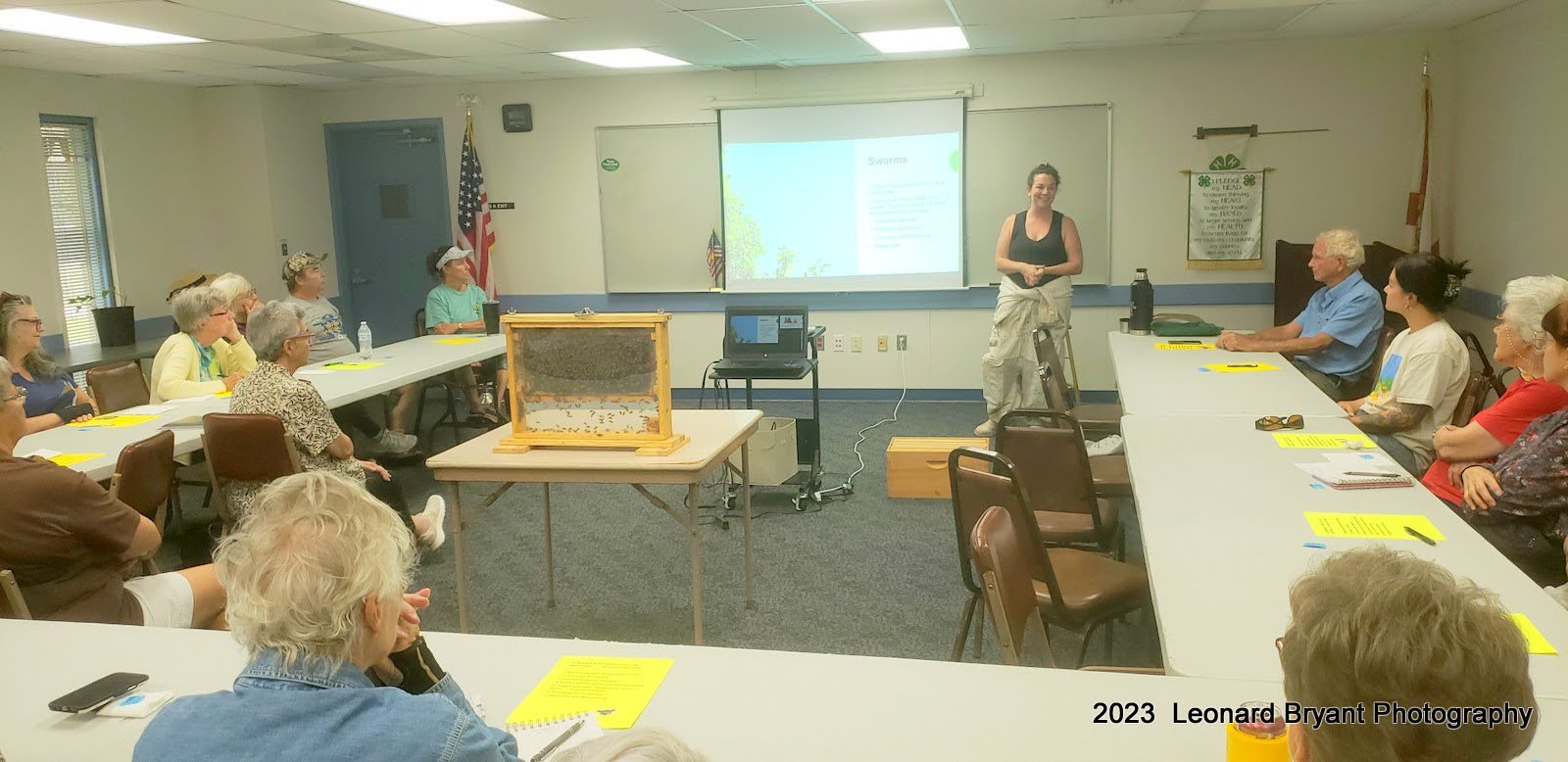The Heartland Bee Newsletter
February 2023 (28th edition)
Are You a Keeper?
by Amanda Johnson
Are you interested in learning about beekeeping and the important role that honey bees play in our ecosystem? Look no further! The Heartland Beekeepers Association is offering a Beginner Beekeeping Class for individuals who want to learn more about these fascinating creatures and how to properly care for them.
By pollinating crops, honey bees play a crucial role in our ecosystem and sustainable agriculture. Without honey bees, our food supply would be severely impacted as they play a vital role in the pollination of many of the fruits, vegetables, and nuts that we rely on. It is estimated that one-third to one-fourth of the food we eat is dependent on pollinators like bees.
Honey bees and other pollinators are facing many challenges, such as habitat loss, pesticides, and disease. That’s why individuals need to get involved and learn how to properly care for honey bees. Not only will you be helping to protect these important pollinators, but you’ll also reap the benefits of producing your honey and other bee products.
The beginner’s beekeeping class offered by the Heartland Beekeeping Association and UF/IFAS Extension, Highlands County is the perfect opportunity to learn everything you need to know to start your apiary. The class is taught by local, experienced beekeepers who will cover the basics of bee biology and behavior, as well as the equipment and techniques needed to set up and maintain a successful bee colony. Participants will learn about the different types of bees, their lifecycles, and the importance of bees in pollinating our food supply. They will also learn about properly caring for the bees, including inspecting the colony, managing disease and pests, and harvesting honey.
The course is open to individuals of all ages and experience levels, and no prior beekeeping experience is required. It will be held at the Bert J Harris Agriculture Civic Center (4509 George Blvd in Sebring) on Saturday, March 4th, from 8:30 am to 12:30 pm. Registration is $20 and includes educational materials as well as a year’s membership with the Heartland Beekeepers Association. A $3.18 service charge is added to cover Eventbrite processing and handling.
Whether you’re a complete novice or have some experience with beekeeping, this class will provide you with the knowledge and skills needed to become a beekeeper. Plus, you’ll have the opportunity to network with other beekeepers and learn from their experiences.
Enroll today and join the beekeeping community! With the knowledge you gain from this course, you can start your colony, and contribute to the preservation of bees. Don’t miss out on this opportunity to discover the joys of beekeeping for yourself. This course is a great way to learn more about these amazing creatures and the importance of preserving and protecting them. Become a part of the solution in protecting our ecosystems and food supplies.
Florida Honey Report - January 2023
by USDA AMS
The month enjoyed about normal temperatures until just before Christmas when temperatures plunged below freezing in most areas from Central Florida northward. There were several nights with lows around 26-28 depending upon how far north of Orlando you were located. Freezing or near freezing night-time temperatures extended further south in the state. Highs for several days were in the 40’s in Central and North Florida. Most vegetation except for cold weather crops like cabbage and greens were destroyed.
Temperatures had warmed back up to around 80 by New Year’s Day weekend. Precipitation was about normal for the month. Bee health was about average with heavy supplemental feeding needed for part of the month. There were scattered amounts of Spanish Needle available in some areas, but not many other alternatives. It should be mid to late January before maple, orange and Titi begin to bloom, depending upon weather conditions. Later in January is also when Florida bees are expected to begin pollinating blueberries in Florida and Georgia.
The Florida State Beekeepers Association released a report showing an estimate of 150-300 thousand hives destroyed by Hurricane Ian. These losses combined with average annual winter losses of around 25% means that Florida faces a potential loss of around 40% of their hives. Demand for almond pollination in California is expected to be a little less this year. Some beekeepers will elect to voluntarily skip California and rebuild their hive numbers for Florida honey production next spring.
Due to the lack of honey produced during the month, beekeepers may have received slightly higher prices for any previously stored honey which was mostly Brazilian Pepper. There was practically no stored honey available at the end of the month.



